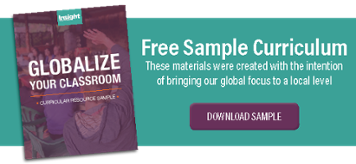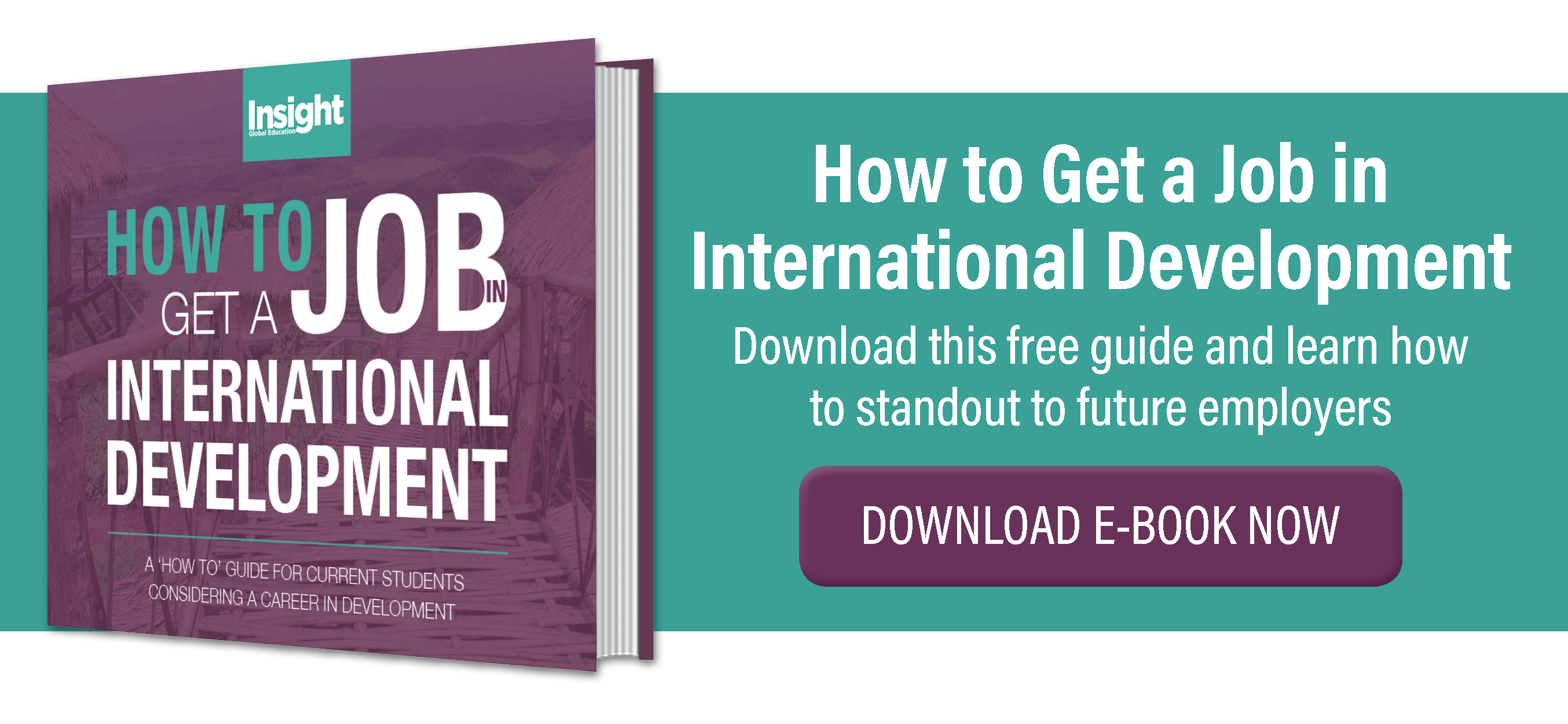Many student travel providers offer programs for high school students based on a “voluntourism” model. Voluntourism is a system in which volunteering and tourism are combined to create a vacation-like experience under the visage of meaningful work. There are a lot of negative aspects to the concept of voluntourism, and you can learn about our concerns with these programs in another blog post here.
If, like us, you are interested in global change but you share the same concerns about this "voluntourism" model, our program was created for you.
Our program model at Insight actively pushes back against this model by simply focusing on local people as changemakers, rather than volunteers as changemakers. Through this model, we aim to balance inspiring change with critical inquiry, thought, and reflection for today’s youth.
So how exactly does Insight differ from this traditional “voluntourism” model?
Community Collaboration
Insight’s high school programs take place in Fiji, Ecuador, Costa Rica, Yukon and Uganda. Everything we do abroad is in collaboration with their local partners. From planting mangroves along the fragile Fijian coastline to hiking through the Amazon while learning about the importance of land from indigenous communities, students are exposed to different perspectives and approaches through engagement and interaction with the community.
 |
| “You need to be in a major humility kind of place… our Western ways are not always the right ways. So we do have some things to offer, but I can assure you that every time I’ve offered something to others, I’ve learned way more myself” (Doris, in Simpson, 2013, p. 124). |
Learning Before Serving
Instead of volunteering, local changemakers offer the students knowledge and expertise in their fields through engaging activities and tours.
Through this model, Insight hopes to change the way developing countries and vulnerable populations are perceived. We believe this approach instills a change in mindsets and a new understanding that we visit new places as guests, to learn and listen, before we can meaningfully contribute and support communities around the world.
 |
| “Why.... are the volunteers in the Global North in the position to volunteer or “serve” those in the Global South in the first place? How might the student/host relationship be seen as the perpetuating inequality in the world rather than alleviating it? Without asking these questions, we fail to consider whether the learning experience may be causing harm in some way” (Tiessen, 129). |
Curricular Ties
Not only are Insight’s program itineraries custom designed to ensure that the learning experience abroad aligns with what students are learning back at home, but we also create free resources for educators, regardless of if you are participating in an international program.
Our Globalize Your Classroom package is built off of the UN’s Sustainable Development Goals. Their blended model of empathy, inquiry, and simulation-based learning aims to give students a unique understanding of our globalized world today. The package is free, interdisciplinary, and comprised of five units that tackle a variety of locally and globally relevant topics, such as income inequality, the history of colonialism, resource allocation and more.
 |
|
“Kirkham, Van Hofwegen, & Pankratz (2009) noted that students who have international … experiences generally experience a raised social consciousness yet note the challenge of sustaining and transferring their learning back to a local setting.” |
Not Just a Two Week Trip
Insight recognizes that two weeks abroad does not give anyone enough time to create sustainable change in a specific region. Because of this reality, we think it is more meaningful and effective to give students the chance to really understand region-specific issues, rather than try and fix these problems with material solutions (such as donating money or building things). Instead, students get to dig even deeper and discuss sustainable approaches to these issues, with local changemakers, academics, practitioners etc., at the helm of the discussion.
In addition, the international experience is supplemented with over 8 hours of pre-departure workshops and post-trip debriefs that allow the students to get the most out of this opportunity.
 |
| “These ‘experiences without critical reflection are just experiences,’ and critical reflection is the essential ingredient to the work of “reshaping, reforming, and re imagining of perspectives and beliefs that serve as the departure point for transformation toward global citizenship” (Stoner et al., 2014, p.160). |
Our goal is that students participating in our programs as an alternative to voluntourism will have a deeper understanding of global systems and inequalities. We hope this knoweldge will foster a desire to learn more, question more, and engage more as global citizens.
Learn more about our high school programs by downloading our free curriculum sample!




Leave A Comment